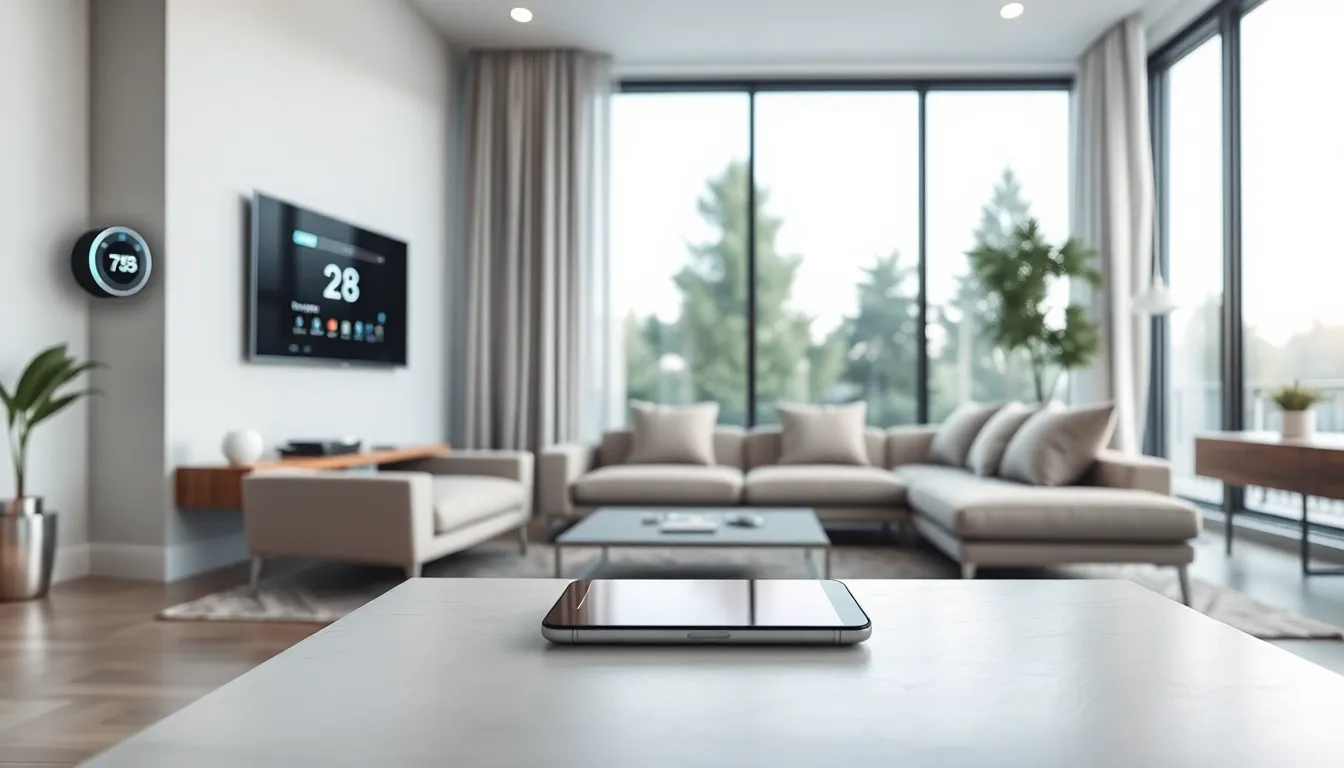Imagine waking up in a home that knows exactly how you like your coffee, strong, extra hot, with just a splash of cream. Welcome to the world of smart homes, where technology meets lifestyle in ways that make life smoother, safer, and downright enjoyable. As these homes flood the market, buyers find themselves standing at a crossroads: stay with traditional options or jump into the realm of cutting-edge living. Aren’t you curious about what makes these homes so appealing? Let’s explore.
Table of Contents
ToggleWhat Is a Smart Home?

A smart home isn’t just a next-gen dwelling: it’s a comprehensive ecosystem that integrates various technologies to streamline everyday tasks. Simply put, it means your home can communicate with you and even make decisions on your behalf. At its core, a smart home is equipped with internet-connected devices that allow residents to monitor and control systems like lighting, temperature, security, and entertainment, all from the palm of their hand. This connectivity often leads to increased efficiency, convenience, and comfort.
Benefits of Smart Homes
The advantages of smart homes are enticing enough to make anyone reconsider their living arrangements. For starters, imagine reducing energy costs. With smart thermostats and intelligent lighting systems, homeowners can adjust settings remotely, ensuring they’re not wasting energy while away from home.
Safety is another prime benefit. Smart security systems come equipped with cameras, alarms, and motion sensors that can alert homeowners of suspicious activity in real-time. This peace of mind is invaluable.
Then there’s convenience. Voice-activated devices can turn on music, adjust the temperature, or even set a friendly reminder about that dinner date, all with just your voice. The integration of various systems also means residents can create customized settings or “scenes”. Want your home to mimic sunrise? A few taps on your app, and voilà. It’s all about elevating your daily life.
Features to Look For in Smart Homes
When on the hunt for a smart home, buyers should know certain features elevate a property’s status from ‘just nice’ to ‘truly smart’.
Popular Smart Home Technologies
From voice assistants like Amazon Alexa or Google Assistant to smart hubs that control devices across different brands, the technology landscape is vast. A well-equipped smart home should integrate seamlessly with these technologies, facilitating effortless commands and interactions.
Smart Security Systems
A crucial feature in any smart home is a robust security system. Look for properties featuring smart locks, doorbell cameras, and motion detectors. These advanced options allow not just for monitoring but can often be controlled and viewed remotely, giving homeowners an extra layer of security.
Energy Management Solutions
For the eco-conscious buyer, energy management tools can significantly reduce your carbon footprint. Smart thermostats adjust heating and cooling based on occupancy, while smart plugs monitor and control energy use from various devices throughout the home.
Integration with Smart Devices
Consider how well the home integrates with other devices you already own. A well-planned network of smart gadgets can save time and ensure that each device communicates effectively.
Finding Smart Homes For Sale
Searching for smart homes can feel overwhelming, but with the right approach, it can be manageable. Start by using specialized real estate websites that filter listings based on tech features. Real estate agents familiar with the smart home market can also provide invaluable insights about properties that fit these modern criteria.
Allow for flexibility in your search criteria. A property might not be branded as a ‘smart home’ but could still feature several tech upgrades. Look for related keywords like ‘automated’ or ‘internet-connected’ in listings.
Also, visiting open houses allows potential buyers to see these features in action, which can be an eye-opener. You might find that some sellers are willing to negotiate on price, especially if they know their home has technological features that could entice tech-savvy buyers.
Considerations When Buying a Smart Home
Like any major purchase, buying a smart home involves careful thought beyond just features and benefits.
First up, consider compatibility. Your future home’s smart devices should play nicely with others. Imagine buying a high-tech fridge that doesn’t communicate with your smart thermostat, frustrating.
Then there’s the issue of updates and support. Technology evolves rapidly: ensure you choose a system with a good track record for updates and customer support.
Finally, take into account how much you appreciate managing technology. Some buyers revel in the latest gadgets, while others prefer a more traditional touch. Your level of comfort with technology should inform your choice. Moving into a smart home is a commitment to continuous learning.
The Future of Smart Homes
As technologies evolve, the future of smart homes looks brighter than ever. Expect advancements like artificial intelligence that adapt to your habits or smart materials that respond dynamically to environmental changes. Homes might soon feature even more intuitive systems that can predict your needs before you even express them.
The integration of renewable energy technologies, such as home solar systems, will also harmonize with smart technology, creating self-sustaining ecosystems. With the proliferation of smart communities designed with interconnected systems, living in a smart home could become the norm rather than the exception.


